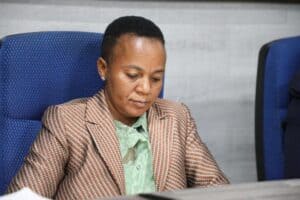But only half this increase has been due to the cost of bulk water …

While most of the attention has been on the skyrocketing cost of electricity, especially as load shedding has become a near-permanent feature of daily life, the price households are paying for water has increased by significantly more in the past decade.
Since 2012/13, Nersa-approved municipal electricity tariffs have roughly doubled. In comparison, the prices being charged for water have effectively at least tripled (up approximately 200%).
Water prices in the three main metros
This is according to an analysis of water tariffs of the three major metros – Johannesburg, Cape Town and eThekwini (Durban) – between 2012/13 and the current financial year (2022/23).
In specific or extreme scenarios, the increase has been closer to fivefold (400%), with some charges up many hundreds of a percent.
Municipalities will argue that the primary driver of these increases has been the cost of bulk water, although this only comprises about half the increase over the last 10 years.
ALSO READ: Water shortage is the next disaster
By way of illustration, in 2012/2013, Umgeni Water’s weighted average bulk tariff was R4.25 per kilolitre (kl). Currently (in 2022/23), it is R8.37. That’s an increase of 97%.
The remainder will be from other expense increases (primarily employee costs), but a not-insignificant proportion of the increase will be due to the operational decline of the metros.
The more water that is lost due to leaks, theft and billing issues (which municipalities call “non-revenue water”), the more has to be recovered through tariffs charged to those customers who actually pay.
The three metros all use the same methodology to charge for water: the more you use, the more you pay per kilolitre in each block.
Two of the three – Joburg and Durban – also provide 6kl of non-billable water to households (Cape Town used to provide 6kl free and Durban 9kl free in the 2012/13 tariffs). This means that if a household uses 20kl of water in a month, they will only pay for 14kl. There are also mechanisms for indigent households to claim specific rebates.
ALSO READ: Desperate Hammanskraal residents digging wells and making boreholes for water supply
Practically, households get their zero-rated allocation (if applicable), and then the charges are per block. So the next 4kl at the rate to 10kl (for example), the next 5kl at the following rate, and so on.
Joburg in particular penalises heavy users significantly.
At above 50kl per month, households are charged R90.80 per kilolitre (excluding Vat); that’s around double the R48/R52 per kilolitre charge for moderate usage (20-30/30-40kl).
It also has seven tariff bands (the most among the three metros), with noticeable differences in the amounts charged per band.
City of Joburg

ALSO READ: Tshwane mayor to propose R1 billion allocation for electricity, water infrastructure
Beyond the above-inflation increases, Joburg households face additional charges.
First, Level 1 water restrictions have been in place in the city for years, despite its primary source of water (the Vaal Dam) being full.
This means the per kilolitre price of water is 15% more expensive than the base tariff. In effect, Johannesburg Water has grown used to these elevated tariffs. Any attempt to normalise the situation (revert to no water restrictions) would necessitate an increase of closer to 25% (instead of 9%).
Second, the city charges a water demand management levy of R33.97 per month.
City of Cape Town

ALSO READ: North West municipality staffer in hot water over fraud allegations
The City of Cape Town no longer provides residents with an allocation of ‘free’ water (it used to zero-rate the first 6kl). This means lower-income households (those who earn R7 500 or less per month) have to apply for indigent support. Under this, the households will continue to receive their first 6kl at no charge.
However, because this automatic allocation was removed, modest users of water (20kl and less per month) who do not qualify for indigent relief will have seen the sharpest increases in the metro. It also means average-usage households will pay the most for water among the metros (as the first 6kl costs R101).
Most households in the city will fall into the widest band (10.5 to 35kl), where the tariff is R31.54 per kilolitre. The city also does not especially penalise heavy consumers of water. Its highest tariff tier is 35kl and higher (at R58.20). This is only two-thirds the rate paid by Joburg residents for usage above 50kl.

In the past decade, eThekwini has changed its zero-rated allocation from 9kl to 6kl per month.
This creates a massive distortion for very low consumers of water (10kl). In 2012, they would’ve only paid for a single kilolitre; today, they pay for 4kl.
Its highest tariff band is for 45kl and above. However, its price per kilolitre at lower bands (it has a single 6-25kl band) is high when compared to tariffs for lower bands in Joburg and Cape Town.
Listen to this Moneyweb@Midday podcast:
This article originally appeared on Moneyweb and was republished with permission.
Read the original article here.
Support Local Journalism
Add The Citizen as a Preferred Source on Google and follow us on Google News to see more of our trusted reporting in Google News and Top Stories.






